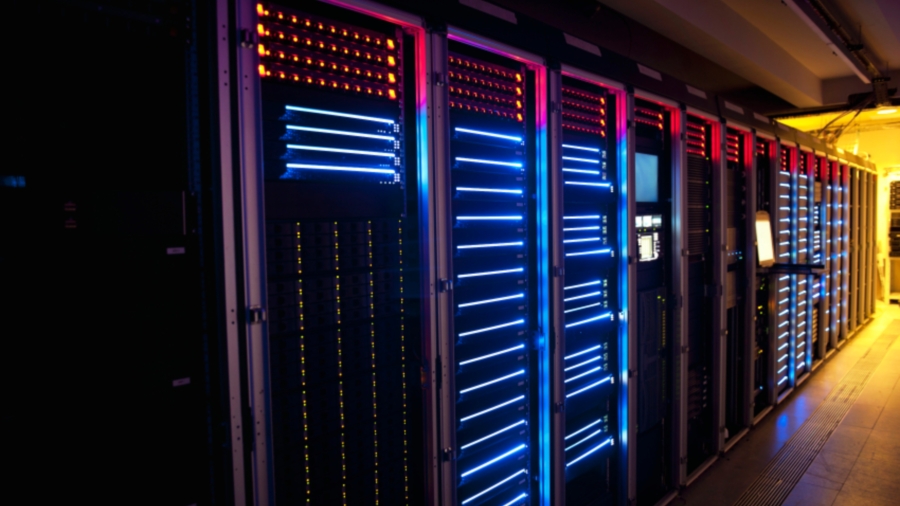Latest News
-
Kraken becomes first digital asset firm to gain direct access to US fed payments infrastructure
-
Government to launch £40m AI research lab
-
The UK government announces £500m support package for British space firms
-
American critical infrastructure likely to be hit by Iranian retaliatory cyber attacks, expert warns
-
Google sued over alleged Gemini suicide coaching
-
OpenAI revises Pentagon contract after surveillance backlash
Top Story
Kraken’s Wyoming-chartered banking unit has been granted a limited-purpose master account by the Federal Reserve Bank of Kansas City, becoming the first US digital-asset firm to gain direct access to the central bank’s core payments infrastructure
Check out our latest features
Latest videos
The future-ready CFO: Driving strategic growth and innovation
This National Technology News webinar sponsored by Sage will explore how CFOs can leverage their unique blend of financial acumen, technological savvy, and strategic mindset to foster cross-functional collaboration and shape overall company direction. Attendees will gain insights into breaking down operational silos, aligning goals across departments like IT, operations, HR, and marketing, and utilising technology to enable real-time data sharing and visibility.
Video Info
The corporate roadmap to payment excellence: Keeping pace with emerging trends to maximise growth opportunities
In today's rapidly evolving finance and accounting landscape, one of the biggest challenges organisations face is attracting and retaining top talent. As automation and AI revolutionise the profession, finance teams require new skillsets centred on analysis, collaboration, and strategic thinking to drive sustainable competitive advantage.
Video Info
The corporate roadmap to payment excellence: Keeping pace with emerging trends to maximise growth opportunities
In this National Technology News webinar sponsored by Bottomline, John Rodgers, Commercial Director, Cash Management & Payments Hub, Bottomline, Anu Widyalankara, Director, Payments Strategy & Technology Lead, EY, and Rajesh Gosain, Director, Payments Modernisation, KPMG UK join National Technology News Editor Jonathan Easton to explore some of the cutting-edge trends disrupting traditional payment models deployed by businesses and provide attendees with strategic insights into leveraging technologies to optimise operational efficiencies and drive business growth objectives.
Video Info
Unlocking finance's potential: Automating close to fuel innovation
In this National Technology News webinar, expert speakers discuss cost-conscious automation tactics and solutions that finance teams can leverage to transform close cycles, providing real-world examples of how organisations can used automation to free staff time from repetitive tasks and redirect focus toward decision support, strategy, and growth initiatives.
Video Info
Bringing Teams to the table – Adding value by integrating Microsoft Teams with business applications
A decade ago, the idea of digital collaboration started and ended with sending documents over email. Some organisations would have portals for sharing content or simplistic IM apps, but the ways that we communicated online were still largely primitive.
Video Info
Automating CX: How are businesses using AI to meet customer expectations?
Virtual agents are set to supplant the traditional chatbot and their use cases are evolving at pace, with many organisations deploying new AI technologies to meet rising customer demand for self-service and real-time interactions.
Video Info
Migrate to modernize: How can companies use cloud to drive the shift to digital?
Cloud migration has become central to many firms' plans for moving into the digital age as customers shift to a range of online and app-based services.
Data, analytics and automation have also become critical to transforming workflows and customer experience as well as driving efficiencies. And cloud data storage is also helping to ensure a company is agile, flexible and ready to scale when needed.
Video Info
Rethinking supply chain operations to ensure business continuity
Supply chains around the world have seen severe disruption in recent times. From the impact of the pandemic and the blockage of the Suez canal, to the global chip shortage and ransomware attacks, unexpected events have the power to upend global trade routes, halt production lines and cause critical shortages of goods for consumers.
Video Info
The state of digital transformation in supply chains
As global supply chains rebalance after the shock of the pandemic, thoughts are returning to growth as well as the potential for future disruption. For many businesses, that means forging ahead with plans for digital transformation as the pace of economic and technological change picks up.























